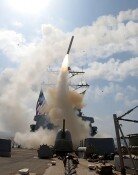Metro Areas Trail Those of Japan and China in Key Areas
Metro Areas Trail Those of Japan and China in Key Areas
Posted June. 16, 2009 07:02,
The results of a new study on regional competitiveness say Korean metropolitan areas lag behind those of Japan and China in core areas.
The study was conducted by the Monitor Group and was the first to rank regional economies rather than those of nations or cities. Competitive rankings were given for 50 indicators in three categories: economic prosperity, attractiveness and connectivity.
Founded by Harvard University professor Michael Porter, the group has 29 offices in 18 major economies and is the worlds most influential assessor of national competitiveness.
New York ranked first by recording 5.25 points out of seven, and London (5.12), and Tokyo (4.59) came next. The rest of the top 10 were Los Angeles; Randstad, the Netherlands; Paris; Singapore; Chicago; the Rhine-Ruhr region in Germany; and the greater Osaka area of Japan.
The Seoul-Incheon region was categorized as a potential leading group with the Shanghai (12th) and Beijing (13th) regions. As Seoul-Incheon received just 3.63 points, while most group leaders had scores exceeding four points.
Seoul-Incheon is expected to be overtaken by up-and-coming regions in China because it got low scores in key competitive indicators: global competitiveness, the share of the knowledge industry, and the regional transportation system.
Shanghai (3.31 points) and Beijing (3.23 points) were hot on the heels of Seoul-Incheon in Asia.
Koreas Busan-Ulsan region received 2.93 points to rank 14th, and was categorized as a latecomer along with Moscow, Mexico City, Rio de Janeiro and San Paolo of Brazil, and Mumbai and Kolkata of India.
Seoul-Incheon ranked 10th in economic prosperity, ninth in attractiveness, and 11th in connectivity. Busan-Ulsan ranked 15th, 13th, and 16th in the three categories, respectively, showing that both regions are uncompetitive in connectivity.
The proportion of subway lines in Seoul-Incheon was 20 meters per square kilometer, which is only 14 percent of Tokyos 140 meters. The study said this probably explains Seouls chronic traffic jams and environmental pollution, which in turn affect other competitive elements such as attractiveness.
Seoul-Incheon and Busan-Ulsan were strong in economic prosperity, but the former ranked 13th in the knowledge value-added industry and the latter 17th.
Both developed and developing countries are releasing policies to strengthen their competitiveness to catch up with the leaders of the world economy, which are undergoing changes in the wake of the global financial crisis.
Allen Scott, an urban economy professor at the University of Southern California, said, As global competition intensifies and the economic structure shifts into the high value-added knowledge-based industry, the world is competing to nurture megacities.
U.S. President Barack Obama has adopted the Metro Nation policy as a new national project. Europe is trying to strengthen its global competitiveness, with France announcing a Grand Paris project and the United Kingdom the London Plan.
China is utilizing a strategy that tests the second-phase reform in 10 regions including the Pearl River Delta region near Guangdong Province, the Yangtze Delta region near Shanghai, and the Jingjintang region comprising Beijing, Tianjin and Tangshan.







